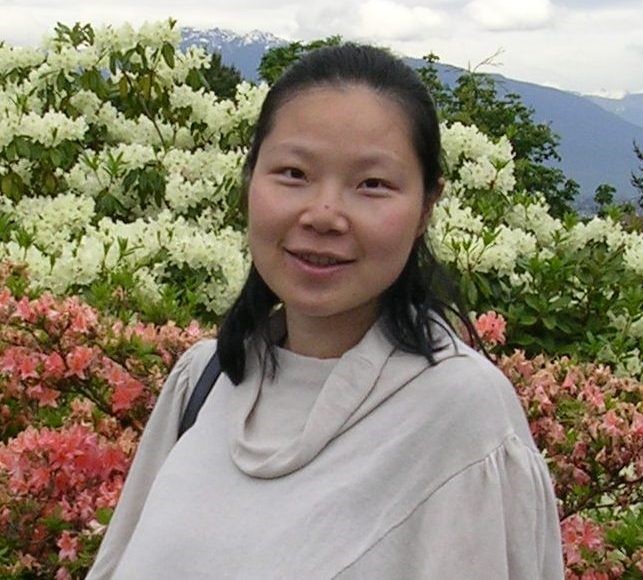





[Download the PDF Call for Papers]
Today's digital contents are inherently multimedia: text, image, audio, video etc., due to the advancement of multimodal sensors. Image and video contents, in particular, become a new way of communication among Internet users with the proliferation of sensor-rich mobile devices. Accelerated by tremendous increase in Internet bandwidth and storage space, multimedia data has been generated, published and spread explosively, becoming an integral part of today's big data. Such large-scale multimedia data has opened challenges and opportunities for intelligent multimedia content analytics & security, e.g., management, retrieval, recognition and categorization. Meanwhile, with the recent advances in deep learning techniques, we are now able to boost the intelligence of multimedia content analysis significantly and initiate new research directions to understand multimedia content. For instance, convolutional neural networks have demonstrated high capability in image and video recognition, while recurrent neural networks are widely exploited in modeling temporal dynamics in videos. Therefore, deep learning for intelligent multimedia analytics & security is becoming an emerging research area in the field of multimedia and computer vision. The goal of this symposium is to call for a coordinated effort to understand the scenarios and challenges emerging in multimedia content analytics & security with deep learning techniques, showcase innovative methodologies and ideas, introduce large scale real systems or applications, as well as propose new real-world datasets and discuss future directions.


Sun Yat-sen University, China / University of British Columbia, Canada
Abstract
Image forensics has been an active research topic during the past decade. Traditional image forensic algorithms mainly extract features left by certain image manipulation procedures, and generally feature extraction and classification are separated and not optimized simultaneously. Motivated by the success of deep learning and deep neural networks in computer vision, researchers began to apply deep learning based methods to the field of image forensics. Deep learning based forensic methods are able to learn feature representations from weak forensic trace signals, rather than strong image contents in computer vision, perform classification automatically, and also can utilize the classification result to guide the forensic feature extraction with the back propagation algorithm. In this talk, we address several challenges in deep learning for image forensics, provide a literature review, introduce our work of applying convolutional neural networks (CNNs) in median filtering image forensics, and then introduce a multi-purpose CNN method for simultaneous detection of multiple types of image manipulations which include forensic and anti-forensic operations.
Biography
Xiangui Kang Received the B.S. degree from Peking University, Beijing, China, and the Ph.D. degree from Sun Yat-Sen University, Guangzhou, China. He was a visiting scholar with University of British-Columbia in 2014, with University of Maryland-College Park during 2011–2012, and with New Jersey Institute of Technology during 2004–2005. He is currently a professor with the School of Data and Computer Science, Sun Yat-Sen University, Guangzhou, China. His research interests include information forensics, watermarking, and multimedia communications and security. Dr. Kang is a member of IMV Technical Committee of Asian-Pacific Signal and Information Processing Association and was a member of IEEE ComSoc’s Multimedia Communications Technical Committee. He has published more than 70 research papers in major international academic journals and peer-reviewed conference proceedings. He is an area editor for Signal processing: Image Communication and KSII Transactions on Internet and Information Systems.
Z. Jane Wang received the B.Sc. degree from Tsinghua University, China, in 1996 and the M.Sc. and Ph.D. degrees from the University of Connecticut in 2000 and 2002, respectively, all in electrical engineering. She has been Research Associate of Electrical and Computer Engineering Department at the University of Maryland, College Park. Since Aug. 1, 2004 she has been with the Department Electrical and Computer Engineering at the University of British Columbia, Canada, and she is currently Associate Professor. Her research interests are in the broad areas of statistical signal processing theory and applications, with focus on multimedia security and biomedical data analytics.
| Tuesday, November 14 | |
| 14:00 - 15:30 | |
| DL-P.1: Deep Learning for Intelligent Multimedia Analytics & Security Posters | |
| Wednesday, November 15 | |
| 09:40 - 10:30 | |
| DL-DST.1: Distinguished Speakers - Xiangui Kang and Z. Jane Wang | |
| 11:00 - 12:30 | |
| DL-O.1: Deep Learning for Intelligent Multimedia Analytics & Security I | |
| 14:00 - 15:30 | |
| DL-O.2: Deep Learning for Intelligent Multimedia Analytics & Security II | |
| 16:00 - 17:30 | |
| DL-O.3: Deep Learning for Intelligent Multimedia Analytics & Security III | |
Submissions are welcome on topics including:
Prospective authors are invited to submit full-length papers (up to 4 pages for technical content, an optional 5th page containing only references) and extended abstracts (up to 2 pages, for paperless industry presentations and Ongoing Work presentations). Manuscripts should be original (not submitted/published anywhere else) and written in accordance with the standard IEEE double-column paper template. Accepted full-length papers will be indexed on IEEE Xplore. Accepted abstracts will not be indexed in IEEE Xplore, however the abstracts and/or the presentations will be included in the IEEE SPS SigPort. Accepted papers and abstracts will be scheduled in lecture and poster sessions. Submission is through the GlobalSIP website at http://2017.ieeeglobalsip.org/Papers.asp.
Notice: The IEEE Signal Processing Society enforces a “no-show” policy. Any accepted paper included in the final program is expected to have at least one author or qualified proxy attend and present the paper at the conference. Authors of the accepted papers included in the final program who do not attend the conference will be subscribed to a “No-Show List”, compiled by the Society. The “no-show” papers will not be published by IEEE on IEEEXplore or other public access forums, but these papers will be distributed as part of the on-site electronic proceedings and the copyright of these papers will belong to the IEEE.
| Paper Submission Deadline | June 2, 2017 |
| Review Results Announced | July 17, 2017 |
| Camera-Ready Papers Due | August 5, 2017 |
Chenggang Yan, Hangzhou Dianzi University
Hongtao Xie, Chinese Academy of Sciences
Zhineng Chen, Chinese Academy of Sciences
Zhenyu Guo, Research & Development, Sengled
Wu Liu, Beijing University of Posts and Telecommunications